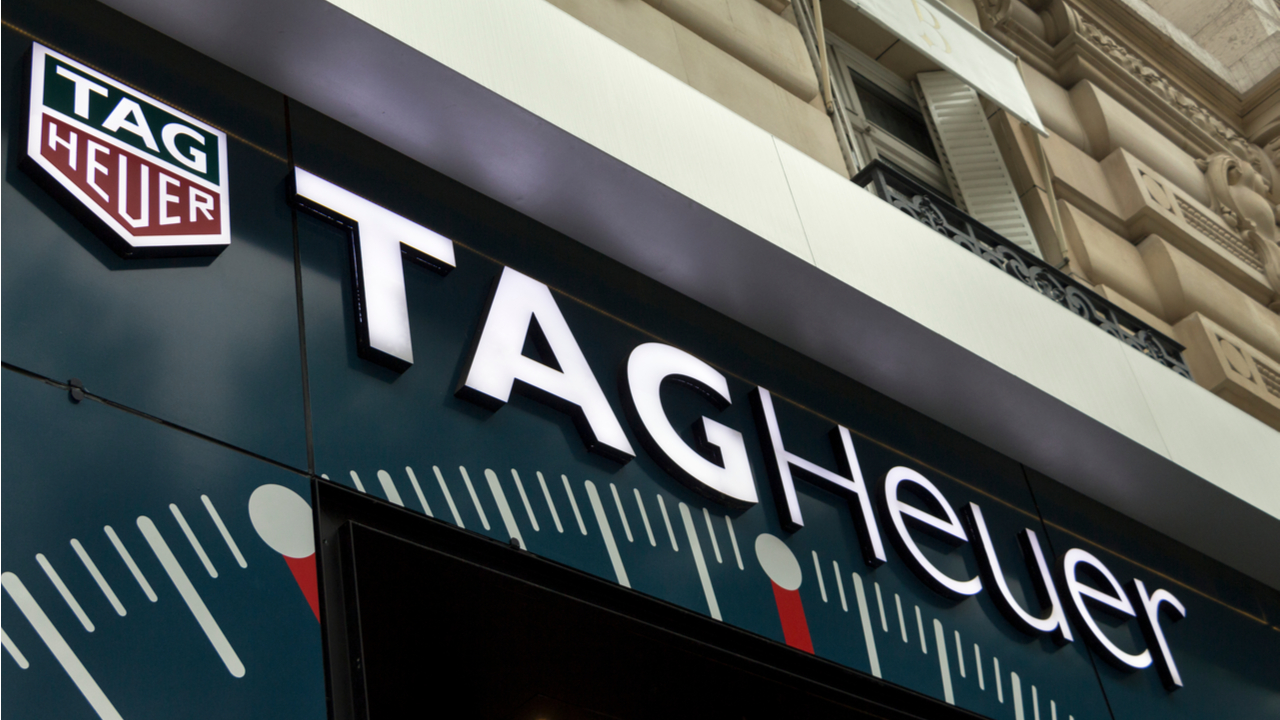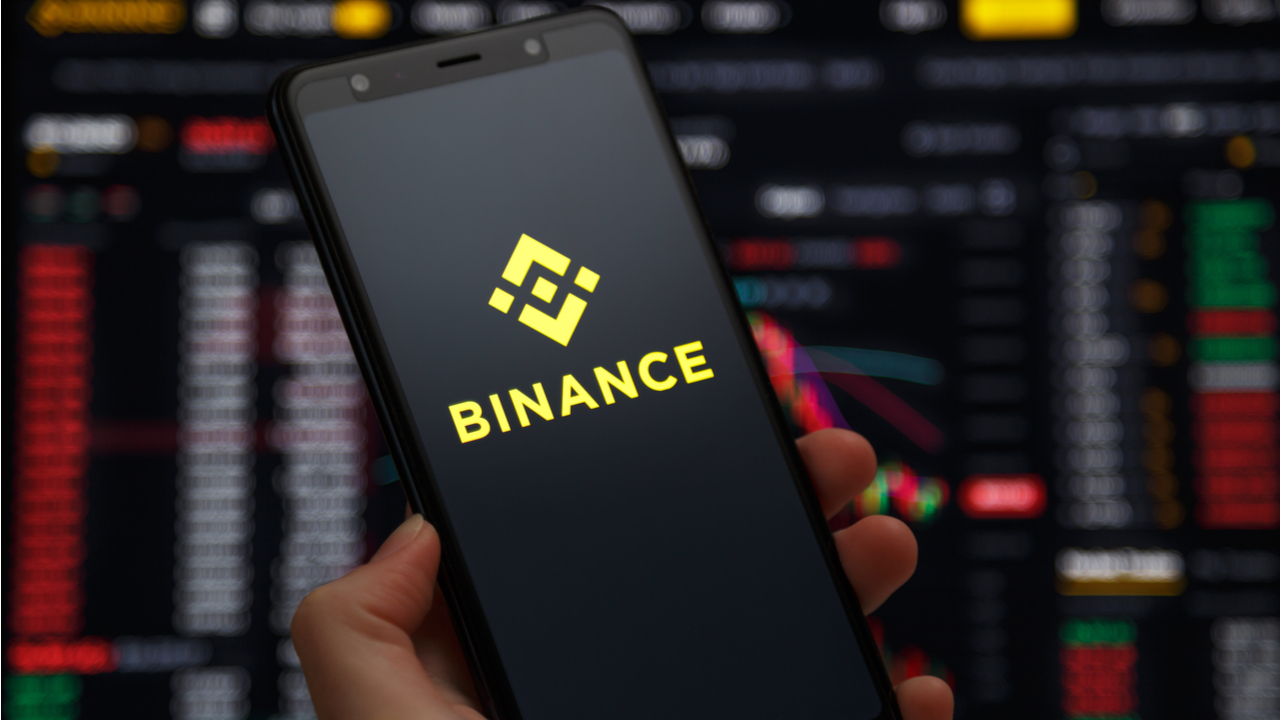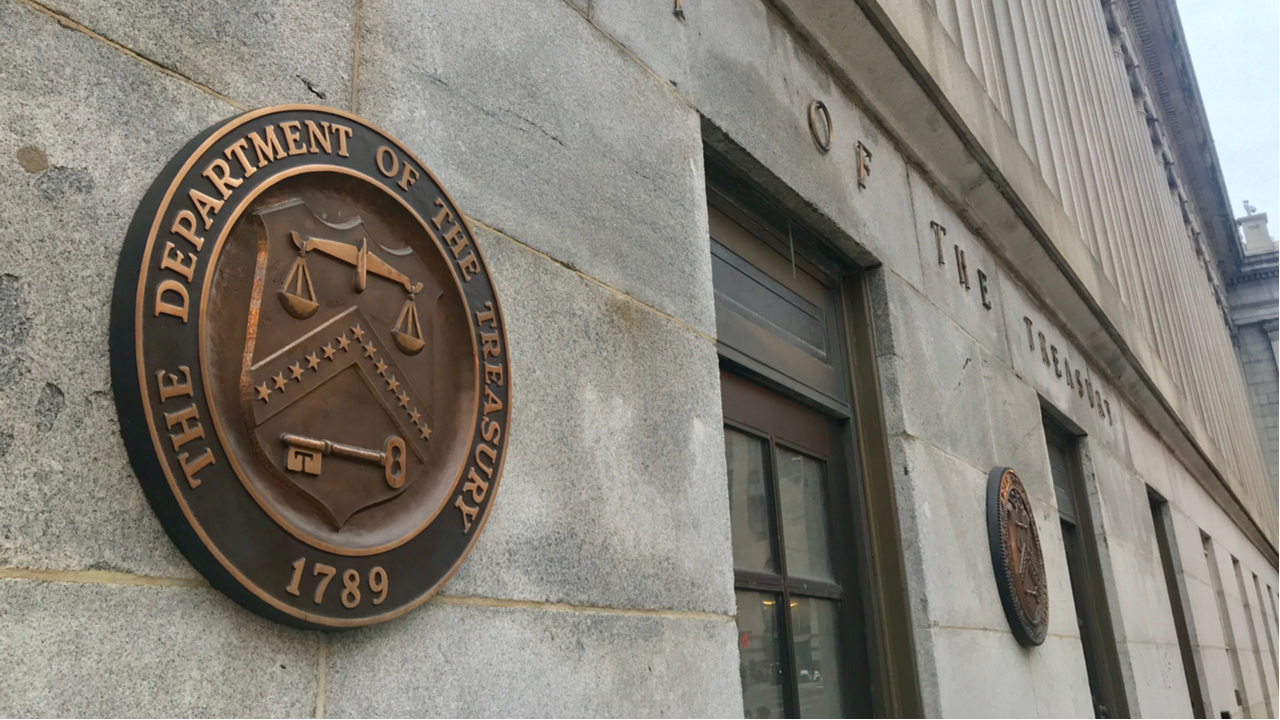 U.S. diplomats have reportedly called on authorities in Tokyo to increase pressure on Japanese crypto exchanges and miners to sever links to Russia. The request was made to deepen Moscow’s financial isolation amid the ongoing Russian assault on Ukraine. Washington Wants Japan’s Crypto Companies to Cut Ties, Further Isolate Russia The United States has urged […]
U.S. diplomats have reportedly called on authorities in Tokyo to increase pressure on Japanese crypto exchanges and miners to sever links to Russia. The request was made to deepen Moscow’s financial isolation amid the ongoing Russian assault on Ukraine. Washington Wants Japan’s Crypto Companies to Cut Ties, Further Isolate Russia The United States has urged […] Having served his five-year prison sentence in France, Russian IT and crypto specialist Alexander Vinnik is now facing a return to Greece and possible extradition to the United States. A French cassation court has recently dismissed an appeal filed by his defense against the transfer. US Extradition Continues to Haunt BTC-e’s Alexander Vinnik The alleged […]
Having served his five-year prison sentence in France, Russian IT and crypto specialist Alexander Vinnik is now facing a return to Greece and possible extradition to the United States. A French cassation court has recently dismissed an appeal filed by his defense against the transfer. US Extradition Continues to Haunt BTC-e’s Alexander Vinnik The alleged […]
Senators confirmed that Bitcoin and Ether will be classified as commodities and regulated by the CFTC.
One can hardly name a document more long-hoped-for as the crypto bill, co-sponsored by United States Senators Cynthia Lummis of Wyoming and Kirsten Gillibrand of New York, was for the crypto community. And, it’s finally here. Last week, Lummis and Gillibrand introduced a 69-page bill in the U.S. Senate. What’s inside? The projects of study on the environmental impact of digital assets and advisory committee on innovation, a tax structure, a mandate for analysis of the use of digital assets in retirement savings and much more.
Should it become law, the bill would undoubtedly implement major changes to the current regulatory landscape. Kirsten Gillibrand and Cynthia Lummis have confirmed that Bitcoin (BTC) and Ether (ETH) will be classified as commodities and regulated by the Commodity Futures Trading Commission (CFTC). At the same time, bill authors consider most altcoins securities subject to U.S. Securities and Exchange Commission (SEC) regulations. “It will be a struggle to decipher what exactly is in the SEC bucket, but it could be the exception that swallows the rule,” a worried expert told Cointelegraph.
Terraform Labs, the parent company behind the collapsed Terra ecosystem, continues its struggle with enforcement agencies and courts in both hemispheres. The Seoul Metropolitan Police Agency received an intelligence tip informing them of possible embezzlement of BTC by one of the firm’s employees, though not Do Kwon himself. But Kwon is still in enough trouble, as The United States Court of Appeals rejected his dispute of a subpoena by the SEC, ruling that it was served correctly.
Major crypto exchange Binance suffered some heavy blows last week. The SEC investigated whether Binance Holdings broke securities rules when it launched its native token BNB in an initial coin offering (ICO) five years ago. Then, Reuters alleged that Binance processed at least $2.35 billion of transactions from hacks, investment frauds and narcotics sales between 2017 and 2021. In its written statement, the company snubbed the journalists’ allegations as disinformation attempts by certain interested parties to “mislead the general public.”
Writing letters is cool once again. A week after the open letter by tech scientists against the lobbying effort of the industry comes the new one, this time from human rights activists. Campaigners from 20 countries have submitted an open letter to the U.S. Congress in support of a “responsible crypto policy” and praising Bitcoin and stablecoins as essential tools aiding democracy and freedom for tens of millions. The human rights coalition lashed out at the authors of last week’s anti-crypto letter who come from countries with “stable currencies, free speech, and strong property rights” and that they most likely haven’t experienced hyperinflation or “the cold grip of dictatorship.”
 A Moscow court has ordered the seizure of the crypto wallet of one of the alleged administrators of darknet market Hydra. Media reports reveal, however, that the man — who was arrested in Russia in mid-April — is refusing to share access to his presumed crypto stash with Russian law enforcement. Investigators Fail to Obtain […]
A Moscow court has ordered the seizure of the crypto wallet of one of the alleged administrators of darknet market Hydra. Media reports reveal, however, that the man — who was arrested in Russia in mid-April — is refusing to share access to his presumed crypto stash with Russian law enforcement. Investigators Fail to Obtain […] Luxury watch manufacturer TAG Heuer announced it’s introducing online cryptocurrency payments for customers in the United States. The Swiss company provides the new payment option through a partnership with crypto payment processor Bitpay. Tag Heuer Partners With Bitpay to Offer US Clients Bitcoin Payments Designer and maker of luxury timepieces TAG Heuer is now accepting […]
Luxury watch manufacturer TAG Heuer announced it’s introducing online cryptocurrency payments for customers in the United States. The Swiss company provides the new payment option through a partnership with crypto payment processor Bitpay. Tag Heuer Partners With Bitpay to Offer US Clients Bitcoin Payments Designer and maker of luxury timepieces TAG Heuer is now accepting […] Leading U.S. crypto exchange Coinbase is slowing hiring, citing the current down cycle in the market as a reason to rethink its staffing strategy. The company’s management believes the move will allow the trading platform to match its hiring needs with its business goals. Coinbase to Reassess Headcount Needs, Focus on Integrating Recent Hires Cryptocurrency […]
Leading U.S. crypto exchange Coinbase is slowing hiring, citing the current down cycle in the market as a reason to rethink its staffing strategy. The company’s management believes the move will allow the trading platform to match its hiring needs with its business goals. Coinbase to Reassess Headcount Needs, Focus on Integrating Recent Hires Cryptocurrency […] Digital asset exchange Binance has blocked accounts tied to relatives of government officials in Moscow. Amid mounting international penalties over Russia’s invasion of Ukraine, the trading platform said it will continue to check for users associated with sanctioned individuals. Crypto Exchange Binance Bans Children of Top Russian Figures Binance, the world’s leading cryptocurrency exchange, has […]
Digital asset exchange Binance has blocked accounts tied to relatives of government officials in Moscow. Amid mounting international penalties over Russia’s invasion of Ukraine, the trading platform said it will continue to check for users associated with sanctioned individuals. Crypto Exchange Binance Bans Children of Top Russian Figures Binance, the world’s leading cryptocurrency exchange, has […] In an attempt to deny Russia opportunities to evade sanctions through cryptocurrencies, the U.S. Department of the Treasury has sanctioned leading Russian mining firm Bitriver. The move comes amid concerns that Moscow may use the minting of digital coins to monetize its energy resources. Zug-Based Bitriver and Its Russian Subsidiaries Blacklisted by United States The […]
In an attempt to deny Russia opportunities to evade sanctions through cryptocurrencies, the U.S. Department of the Treasury has sanctioned leading Russian mining firm Bitriver. The move comes amid concerns that Moscow may use the minting of digital coins to monetize its energy resources. Zug-Based Bitriver and Its Russian Subsidiaries Blacklisted by United States The […]
SROs can eventually provide “connective tissue” between the crypto industry and government as U.S. regulatory infrastructure forms.
As the adoption of crypto takes off, the industry is exerting increasing influence on American society. This can be seen in its lobbying efforts and political action committees, for example, and in its own organizational efforts, such as business associations that promote it at the state, regional and national levels. Another way crypto is influencing society is through self-regulation.
The broader impact of self-regulation may be less apparent than when a PAC finances a political campaign or a startup is nurtured in a crypto industry-sponsored accelerator, and that limited visibility probably reflects the extent of self-regulatory organizations’ (SROs) influence at present. But SROs are helping shape the crypto industry itself, and they may eventually have a role in the crypto regulatory framework that is beginning to come out of the U.S. federal government.
The first crypto SROs formed outside the United States. The Virtual Commodity Association, proposed by Gemini in March 2018, is considered the first attempt to create a U.S. crypto SRO. Its stated mission is “to establish an industry-sponsored, self-regulatory organization (SRO) designation for U.S. cryptocurrency marketplaces to oversee virtual commodity marketplaces.” To that end, it formed as a working group with Gemini and bitFlyer as members, and established an assortment of committees the following year. The organization is not yet very active.
Later in 2018, a group of ten financial and tech firms created the Association for Digital Asset Markets (ADAM). According to the ADAM website, it now has 31 members and five partnering law firms.
Robert Baldwin, head of policy at ADAM, told Cointelegraph the organization is a standard-setting body that seeks to protect the spot market for digital assets. It provides insights “on the Hill,” interacting mainly through written comments, crypto “sprints” and meetings with stakeholders.
Industry efforts to set standards are likely seen favorably by regulators, Anthony Tu-Sekine, head of the blockchain and cryptocurrency group at Seward & Kissel LLP, told Cointelegraph, but establishing an SRO with authorities delegated by regulatory bodies would likely require congressional backing, and it would need to be registered in accordance with the Securities Exchange Act of 1934.
Getting that done “would be a big lift,” according to Tu-Sekine, especially for a cryptocurrency exchange, since it would list both securities and commodities and would have to deal with both the Securities and Exchange Commission (SEC) and the Commodity Futures Trading Commission (CFTC).
ADAM may get the boost it needs from Congress, however, if Sens. Lummis and Gillibrand’s forthcoming crypto bill becomes law. It reportedly calls for the creation of an industry SRO.
An important function of a U.S. SRO is to provide uniformity across the jumble of state laws and the underdeveloped federal regulatory framework. As President Biden’s Executive Order on Ensuring Responsible Development of Digital Assets goes into effect, the federal government will begin filling in the missing pieces in regulation, and the potential role of an SRO will change.
In his April 4 speech at the University of Pennsylvania, SEC Chairman Gary Gensler emphasized, “There’s no reason to treat the crypto market differently just because different technology is used,” indicating that he sees a clear path for regulatory efforts already.
The SEC and CFTC each “has decades of history and precedent for determining what is a security and what is a commodity, and they can see their places on the crypto market,” Andrew Lom, global head of private wealth at Norton Rose Fulbright US LLP, told Cointelegraph. The agencies have come into conflict over the years, but have also cooperated in important ways, such as under the Dodd Frank Act, and likely even more behind the scenes, he added.
A crypto-industry SRO could “provide the connective tissue between the regulations, and between the industry and government,” Baldwin said. He said he was optimistic about the future of crypto regulation. Spot markets will have a regulator of primary jurisdiction, and that will advance the asset class.
Tu-Sekine said possible functions for a cryptocurrency exchange SRO would include defining listing requirements, setting rules and operational procedures, and petitioning the SEC for rule amendments.
Although ADAM states on its website that it “intends to build and maintain strong relationships with a wide range of stakeholders both inside and outside the U.S.,” its focus on “the Hill” is evident. It is, for instance, deeply engaged with FINRA Regulatory Notice 22-08. That SRO, it says, is overstepping its traditional mission and discouraging innovation by labelling some financial products “complex.”
The Global Digital Asset and Cryptocurrency Association, founded in 2020, displays its international orientation in its name. CEO Gabriella Kusz told Cointelegraph the organization takes a modern approach to self-regulation, embracing peripheral industries with open, inclusive membership and keeping the public interest firmly in focus.
Global DCA, as it is referred to, is based in Chicago and had 70 member organizations in at least 11 countries as of last week. It works with 15 global partners, including ones in the U.K., E.U., Nigeria, India, Kazakhstan, Armenia and Kosovo. Kusz said the organization is gaining about one new member a week. All members are vetted for their AML/KYC processes and alignment to the Global DCA code of conduct.
Kusz said the organization’s activities consist in standards setting, education and advocacy through the data collection, research and insight. Membership fees are used to finance free education. A certification program is planned to “assure competent professionals capable of meeting the needs of the market.” It also interacts with authorities, holding 37 “U.S. Congressional Meetings” in 2021.
Federal regulation is necessary but not sufficient, Kusz said. Rather, a holistic approach to a regulatory framework is needed. “Regulatory bodies need to move away from an adversarial role toward community management to help shape an ecosystem that works,” she said. “I am not fearful” about regulation, she continued, “but optimistic."
"It will take multiple organizations to steward the industry and bring forward innovation. It’s not competitive,”
Kusz concluded.
The Global DCA was joined this year by yet another self-regulatory effort. The Crypto Market Integrity Coalition (CMIC). The coalition was spearheaded by Solidus Labs and promotes a pledge to encourage “a fair digital asset marketplace to combat market abuse and manipulation and promote public and regulatory confidence” in crypto worldwide. “We welcome regulators who want to learn more about CMIC or have ideas about how industry can promote market integrity in digital asset markets to contact us,” according to its website. Its membership stood at 30 as of the beginning of this month.
 Law enforcement agencies in Germany have targeted Hydra, a leading darknet market (DNM). As part of an operation conducted with U.S. support, the German police were able to establish control over the servers of the Russian-language platform in the country and take down its website. Investigators Hit Hydra in Germany, Confiscate Millions in Crypto Hydra […]
Law enforcement agencies in Germany have targeted Hydra, a leading darknet market (DNM). As part of an operation conducted with U.S. support, the German police were able to establish control over the servers of the Russian-language platform in the country and take down its website. Investigators Hit Hydra in Germany, Confiscate Millions in Crypto Hydra […]